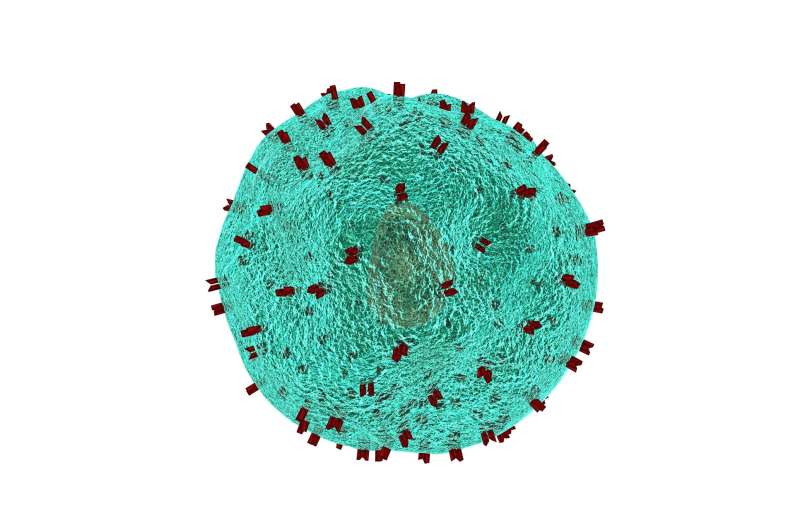Study suggests that high-fat diets fuel the creation of inflammatory immune cells in the bone marrow of mice

Scientists have shown that high-fat diets can cause rapid changes in the bone marrow of mice, driving the production of inflammatory immune cells, according to findings published today in eLife.
The results may help explain how high-fat diets trigger inflammation, which can contribute to the development of insulin resistance, type 2 diabetes and other complications in individuals with obesity.
An invasion of inflammatory immune cells, called monocytes, into fat tissue is a hallmark of obesity, but what leads to this harmful phenomenon is unclear. Many immune cells, including monocytes, are produced in the bone marrow, which is very sensitive to environmental changes. Scientists have already shown that fat cells in the bone marrow rapidly expand in response to a high-fat diet.
"We wanted to know if bone marrow tissue was an early responder to a high-fat diet that could serve as a precursor to the inflammation observed in obesity," says senior author Amira Klip, Senior Scientist in Cell Biology at SickKids, and Professor in the Departments of Pediatrics, Biochemistry, and Physiology at the University of Toronto, Canada. "Do high-fat diet-induced changes in the bone marrow lead to the production of the inflammatory monocytes that invade fat tissue in people with obesity?"
Klip and colleagues found that mice fed a high-fat diet begin to experience metabolic disturbances throughout their body and in the bone marrow within three weeks. Fat cells in the bone marrow multiply and take on white fat cell characteristics. Metabolic changes in the monocytes at the bone marrow cells also occur—they use less oxygen to break down sugar into energy, and lactic acid builds up in the cells and surrounding fluid. The team also found that mitochondria, cellular factories that break down sugar into energy, break apart into fragments within the monocytes and become less efficient. This process of mitochondrial fragmentation is associated with insulin resistance.
Over several weeks, the number of monocytes in the bone marrow shifts to include less of a monocyte called Ly6Clow to more of a monocyte called Ly6Chigh, the same type of monocyte that invades fat tissue in people with obesity. This accumulation of Ly6Chigh monocytes in the bone marrow starts before monocytes build up in fat tissue in the rest of the body to become inflammatory macrophages—the mature form of monocytes.
"These results show that high-fat diets can cause remodeling in bone marrow fat cells that disrupt the normal balance of monocytes, and can subsequently lead to invasive Ly6Chigh monocytes spilling into the body," continues Klip.
The team further demonstrated that white fat tissue can spur these changes in experiments using cell samples from mice fed a high-fat diet. They also found that brown fat tissue, which is more abundant in leaner people, can cause a shift towards the non-invasive Ly6Clow monocytes.
"Our study reveals how high-fat diets trigger a cascade of inflammation in the body that involves the bone marrow," concludes Klip. "More research is needed to understand this process further and find out if there are ways to prevent or reverse this process. It will also be important to know if the bone marrow is also an early responder to obesity in humans. Learning more could lead to new therapies for treating obesity and preventing complications such as diabetes."
More information: Parastoo Boroumand et al, Bone marrow adipocytes drive the development of tissue invasive Ly6Chigh monocytes during obesity, eLife (2022). DOI: 10.7554/eLife.65553


















